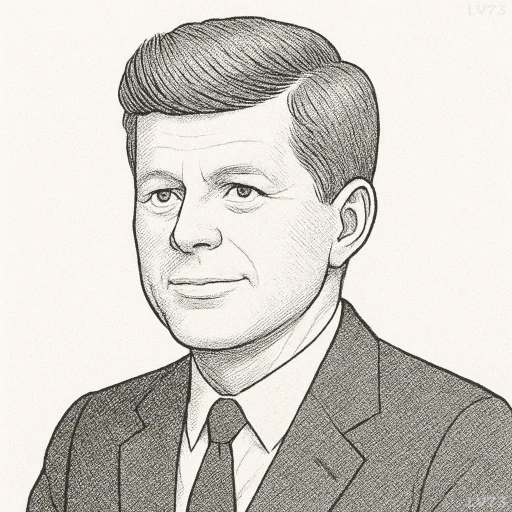“All free men, wherever they may live, are citizens of Berlin. And therefore, as a free man, I take pride in the words ‘Ich bin ein Berliner!'”

- May 29, 1917 – November 22, 1963
- American
- Politician
table of contents
Quote
“All free men, wherever they may live, are citizens of Berlin. And therefore, as a free man, I take pride in the words ‘Ich bin ein Berliner!'”
Explanation
In one of the most famous speeches of his presidency, John F. Kennedy proclaims his solidarity with the citizens of Berlin during the height of the Cold War. By declaring “Ich bin ein Berliner” (“I am a Berliner”), Kennedy affirms that the struggle for freedom and democracy is not confined to one city, one country, or even one continent, but is a universal cause that binds all free men together. His statement was delivered in West Berlin on June 26, 1963, just two years after the construction of the Berlin Wall by the Soviet-backed government of East Germany, which physically and ideologically divided the city and symbolized the broader division between East and West during the Cold War.
Kennedy’s words were intended to send a powerful message to both the citizens of Berlin and the rest of the world. He emphasized that Berlin’s fate was not isolated from the broader cause of global freedom and democracy. By declaring that all free men were citizens of Berlin, Kennedy effectively positioned the city as a symbol of resistance to the forces of oppression and totalitarianism, particularly the Soviet Union and its communist ideology. The speech also served as a direct challenge to the Soviet Union and its satellite states, reinforcing the commitment of the United States to stand by its allies and to defend democracy in the face of Soviet aggression.
This speech, and Kennedy’s declaration, have resonance far beyond the Cold War era. His statement remains a symbol of international solidarity and resilience in the face of authoritarianism. In modern times, Kennedy’s words are often invoked in the context of global human rights struggles and the ongoing fight against forces that seek to undermine freedom, whether in the form of dictatorships, terrorism, or other forms of political oppression. The message that freedom is a shared responsibility and a universal right continues to resonate with those who seek to promote justice and democracy around the world.
Would you like to share your impressions or related stories about this quote in the comments section?


